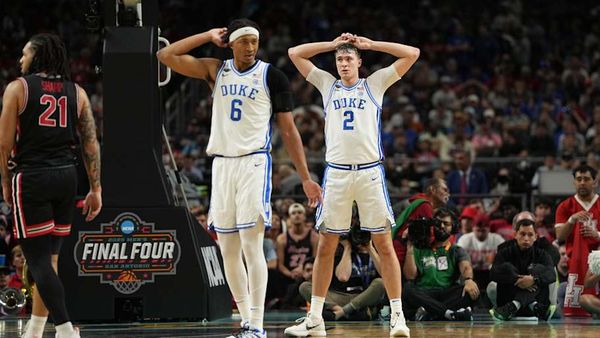
The history of the Tour de France is marked by what French observers refer to – while licking their lips – as bouleversements, when the obvious race scenario is turned upside down in an unexpected and dramatic way. One of those great upsets took place this week, when the wraith-like Dane Jonas Vingegaard dislodged the race’s No 1 favourite, Tadej Pogacar, whose domination of the first 10 days had led most onlookers to predict a seamless third overall title.
Mostly, the Tour proceeds according to a formbook that is written early on; usually, the race belongs to the favourite who performs best at the first mountain top finish or time trial. That was how the 2022 Tour looked, but on Wednesday, when the stage finished atop the giant Alpine climb of the Col du Granon, Vingegaard and the Jumbo-Visma team first harassed Pogacar mercilessly before dispatching him with clinical ruthlessness.
It will take its place in the Tour’s pantheon of great turnarounds. Marco Pantani destroying Jan Ullrich on the Galibier in a torrential rainstorm in 1998 was probably the most recent occasion while 1989, when Greg LeMond seized yellow from Laurent Fignon in a final-day time trial, will probably always remain the ultimate example, as well as being the Tour’s greatest comeback.
The French have affectionate memories of Bernard Thévenet unexpectedly destroying Eddy Merckx in 1975, while in 1976 Lucien Van Impe won his only Tour with an epic, and unlikely attack, through the Pyrenees.
That it is necessary to go back so far shows how rare Vingegaard’s achievement is, no matter whether he wins the Tour or Pogacar stages a bouleversement of his own.
Vingegaard’s victory was also a rare example of a decisive Tour stage where team tactics worked to perfection, admittedly helped by Pogacar’s UAE Team Emirates being reduced in numbers by the Covid-19 virus. However, it had already been obvious on several occasions in the first week that the team might not be up to the task ahead of them.
When Wout van Aert attacked to win the Calais stage, UAE were unable to put numbers around Pogacar. The same thing happened on the cobbled road to Arenberg the next day, when the young Slovenian’s strength disguised their weakness. Similarly, when Van Aert made his fruitless long-range attack en route to Longwy the next morning, two of Pogacar’s men were unable to hold the rampaging peloton midway through the stage.

The events of Wednesday demonstrated no matter how strong an individual might be in the Tour de France, if they are up against a strong team, they are unlikely to win unless they have a strong group of workers around them.
Van Aert’s strength early on indicated he might well play a key role in any Alpine assault by Jumbo‑Visma, and so it proved. The points leader raced clear immediately when the flag had been dropped in Briançon on Wednesday; his role was to get into an early escape and wait for Vingegaard and the group of race favourites after the Col du Galibier.
Eventually, he was joined in the escape by the Frenchman Christophe Laporte, whose job was to support Vingegaard’s co-leader, Primoz Roglic, who was allotted the task of making the race as hard as possible for Pogacar before Vingegaard made his move.
Any race is unpredictable but Jumbo-Visma’s plan worked to perfection. With first Tiesj Benoot, and then Laporte – who had waited on the ascent that leads to the Galibier, the Col du Télégraphe – to assist him, Roglic began attacking the group of race favourites on the Galibier, with Vingegaard joining in.
Roglic had been suffering from a back injury for the previous eight days but his effort was enough to dispose of Pogacar’s remaining teammates, leaving him short of support apart from the ubiquitous Rafal Majka. Roglic put in more attacks higher up the mountain – at a spot known as Plan Lachat – but cracked just before the summit. However, Van Aert had gone over the Galibier in front, along with other members of the early move, and the Belgian was able to wait on the descent before guiding Roglic back to Pogacar and Vingegaard.
This was crucial, as it meant that when he began the ascent of the Granon, Pogacar came under attack from Roglic as well as Van Aert, and was forced to expend mental and physical energy in responding while Vingegaard bided his time before delivering the coup de grâce.
The past few years have seen the emergence of “super-teams”, the two-wheeled, big budget equivalent of Real Madrid or Barcelona, rammed with cycling galácticos. The models differ subtly: multiple leaders at Ineos, a single leader and a host of expensive workers at UAE-Emirates, and, at Jumbo-Visma, twin leaders plus the best all-rounder in the sport, Van Aert.
When Van Aert was showing his strength in the first week, a rival manager said he believed the eventual Jumbo-Visma plan would be to isolate Pogacar from his teammates in the mountains, leaving him to the tender mercies of Vingegaard and Roglic.
That interpretation was clearly correct and, barring an unforeseen incident, this is now the Dutch team’s race to lose. If this turns out to be a collective victory, it would be worth reflecting on the contribution of Roglic, Tour runner-up in 2020, quite possibly destined never to win the great race.







